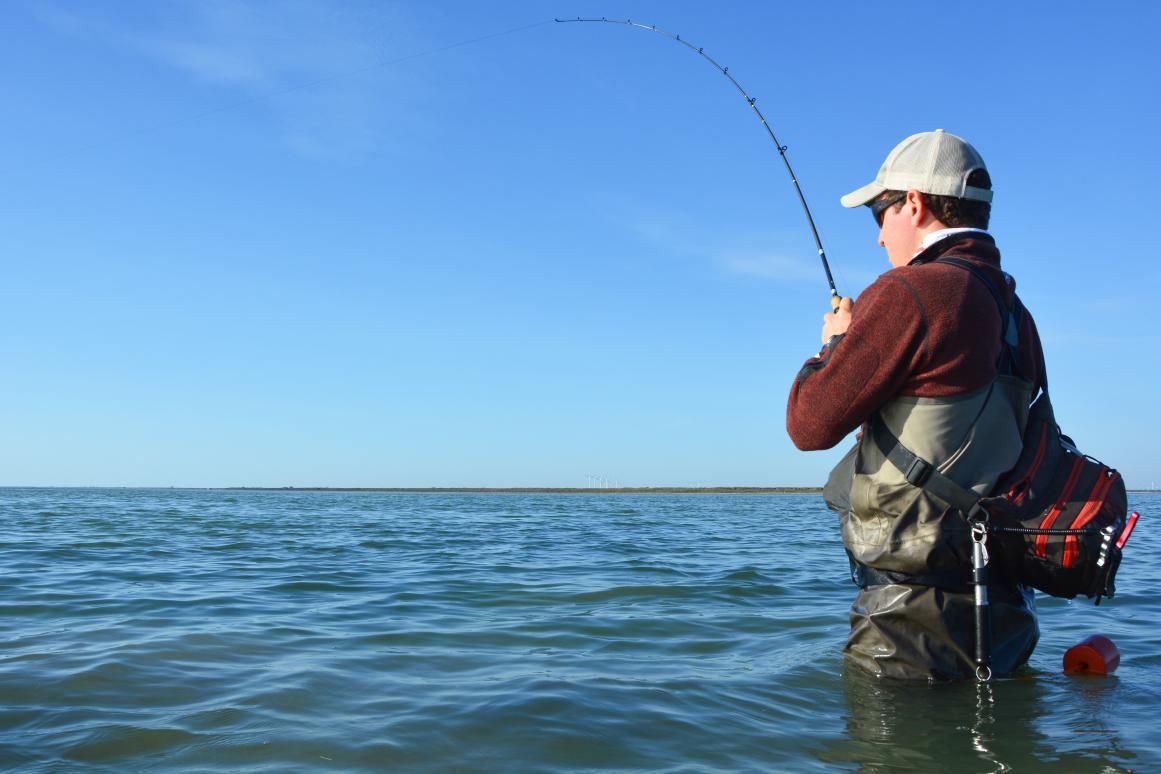HRI Researchers Tackle the Human Impacts on Water Resources in Three New Projects

CORPUS CHRISTI, Texas — Three new projects led by researchers at Harte Research Institute at Texas A&M University-Corpus Christi are examining the human drivers of water quality and quantity issues facing Texans. The projects are part of an initiative that aims to study the socio-economic forces affecting water in the state. That program is known as the Mitchell L. Mathis Program for Environmental Water Economics.
These new projects will look at three different but extremely important issues affecting Texas’ coastal environment: The freshwater inflows that sustain the health of our coastal bays and estuaries; a study of the human forces driving nutrient pollution, an abundance of nitrogen and phosphorous that can cause environmental problems, in our watersheds; and a look at the problem of persistent brown tide and other harmful algal blooms (HABs) in Baffin Bay.
“Water is a natural resource that is both controlled by and necessary for our human populations. For it to be effectively, efficiently, and equitably managed as a natural resource, you have to include social and economic impacts,” said HRI Senior Executive Director Dr. David Yoskowitz, a socioeconomic expert who leads the Mathis Program in a partnership with the Meadows Center for Water and the Environment at Texas State University.
“Our model at the Harte Research Institute is a holistic approach,” Yoskowitz said. “We spend a lot of resources, time, and energy thinking about the biogeophysical aspects of water — these three important projects are looking at the socioeconomic importance of water quantity and quality in our region.”
HRI Project Coordinator Kara Coffey and HRI Graduate Research Assistant Mary Kramer are also helping to manage the new Mathis Program through HRI.
“Building upon the previous work supported by The Cynthia and George Mitchell Foundation, which includes the Mathis Program, this work will begin to capture the socioeconomic connection, impacts, and drivers to water, and hopefully begin to incorporate these aspects into decision making regarding water quality and quantity,” Coffey said. “With our growing Texas population ever in need of more water resources, it is important consider a holistic approach to water resource economics and social impacts and connect to the work already in place in the biogeophysical sciences, to continue toward science-driven solutionsTM.”
To learn more about the Mathis Program, visit its page on the Harte Research Institute website or connect with us on Twitter at @H2OEconomics.
The projects include:
HRI Lead Investigator: Dr. David Yoskowitz
Partners: Robin Riechers and David Bradsby, Texas Parks and Wildlife Department; Carla Guthrie
and Caimee Schoenbaechler, Texas Water Development Board
HRI researchers: Christine Hale, Kara Coffey, and Dr. Diana Del Angel
Grant: NOAA RESTORE Science Program
This project will explore the feasibility of including social and economic data and information into a decision tool that will provide managers with a better understanding of the impact of water in all its uses, including environmental flow, and how to maximize environmental, social, and economic benefits while adapting to changing conditions over time. Freshwater inflow, the amount of water flowing into coastal estuaries, is critical to both ecological functions and ultimately human well-being.
HRI Lead Investigator: Dr. David Yoskowitz
HRI Researchers: Kara Coffey and Mary Kramer
Grant: Mitchell Foundation
This project will build on questions about the potential economic impacts of nutrient-related pollutants in Texas surface waters, and suggestions that future research should focus on why water quality improvements have stagnated in Texas, including the socio-economic drivers. This work will pick up on that recommendation and examine socio-economic, policy, and management drivers in San Antonio/Guadalupe and Nueces/Rio Grande basins and adjacent bay systems. The project will develop the methodology, create the linkages, and build a GIS visualization of the likely socioeconomic drivers through a co-production process that involves partners and stakeholders.
HRI Lead Investigator: Dr. David Yoskowitz
Partners: Dr. Christa Court, University of Florida; Dr. Jim Lee, Texas A&M University-Corpus Christi;
HRI Chair Dr. Michael Wetz
HRI Project Coordinator Kara Coffey
Grant: Gulf of Mexico Alliance Gulf Star Program
Harmful algal blooms (HABs), and brown tide, can have negative ecological and economic impacts, with evidence suggesting that climate change and anthropogenic effects are increasing the frequency and duration of these events. One system continuing to suffer from these types of events is Baffin Bay and the Upper Laguna Madre in Texas, which represents critical habitat for several economically and ecologically important fish species and is popular with recreational and commercial fishermen. Anecdotal evidence suggests these blooms have negative impacts on the estuarine food web, while anglers have reported poor fishing during blooms due to poor visibility. The goal of this project is to study the connection between water quality, and brown tide events, and the social and economic impacts of these events.
